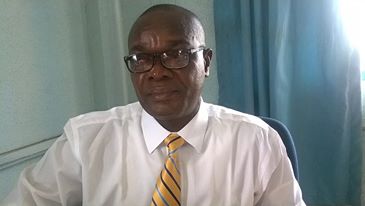…Says Minister’s assertion true
For going ahead to award the contract for the construction of Baro river port in Niger State to the tune of N5.8 billion even when he is aware of the non-viability of the port, the Chartered Institute of Logistics and Transport (CILT) Nigeria has taken a swoop on the Minister of Transportation, Hon. Chibuike Rotimi Amaechi, insisting that he owes Nigerians apology for embarking on waste of public funds.
The Minister of Transportation, Hon. Chibuike Rotimi Amaechi had in a television programme recently stated that the construction of river ports across the country is a waste of public funds as they are not viable projects.
Amaechi had said in the programme that if the lower River Niger is not dredged, no vessel would be able to sail to Baro port adding that ““I had this conversation with my friend, Senator Goje about the viability of the river ports that we have including Onitsha, Baro, Lokoja and Oguta river ports and I felt that it was a waste of funds.”
He went on to say, ““The reason is that for you to have those river ports functional, you must have to dredge River Niger. For now, even if you dredge, it is still 2.5 to 3 metre draft, which determines the vessel that can go there and the minimum you can have is a six-metre vessel. There is absolutely no vessel that will come in there at 2.5 to 3 metres draft.
“The idea when the Baro port was concessioned is that you pick up a cargo maybe in Warri or Port Harcourt because Lagos is too far and put it on a barge and move it to Baro. But how many times will the barge be able to move those cargoes to Baro?
“For the man who imports through Lagos or Port Harcourt, if he puts it on a train, he arrives the same day, and there is no issue of insecurity unlike the man who has taken the cargo from Port Harcourt seaport to Baro by barge.
“They wanted the port constructed, so we completed it. My responsibility is to construct a Baro port and I have constructed it. As Minister, I did engage the public that these are the problems we will face when we finish this Baro port. First Nigeria does not produce anything in the first place so what are you going to transport? If we make the Apapa seaport very efficient, then we don’t even have enough cargo.”
Reacting, the National Executive Director, CILT Nigeria, Mr. Paul Ndibe in an interview with Primetime Reporters in Lagos on Wednesday described the unfolding scenario as unfortunate.
Ndibe wondered why the Minister went ahead to award the construction of the port when all these facts were before him saying that the statement coming from the Minister now seemed like he was indicting himself.
According to him, “This same Minister was the Minister at that time; it is the same Minister that approved the construction works at the Baro River port. Was there no feasibility studies? Was there no business plan? So, how come such funding was undertaken without prospects of turning around the place? That is the questions the Minister will answer.
“It is unfortunate he is coming now to announce that investment in River ports may not be high yielding investment. If he has made a mistake, he should admit that he has made a mistake but to make an oval statement like that, it is like he is indicting himself.”
However, on the merits of the statement by the Minister, the National Executive Director stated that “In a sense, the Minister, I would say is right in saying that river ports may not generate (let me modify what he would have said) as much economies as the deep sea ports. If he had said that, perfect, because river port are fraught with so many difficulties. They don’t have the required draught, they may not have even the channel and you may consistently be dredging because anywhere there is erosion, it drags everything to the seaport and it goes, it carries the waste and then, for how long would you consistently dredge?
“Secondly, if you look at even the port area as it is, it is limited. The port area because it is a river port may not provide adequate terminal space for optimization of operations.”
The Baro river port, which was built by the National Inland Waterways Authority (NIWA) at the whooping sum of N5.8 billion, was commissioned by President Muhammadu Buhari in January 2019.
The President had during the commissioning said that the inland port would enhance intermodal transportation connectivity in the country, reduce pressure from big trucks off the road and create “huge employment opportunities for Nigerians, while also decongesting other busy ports”.
However, despite the economic benefits taunted by the government, port has remained dormant since commissioning.
Photo: National Executive Director, CILT, Nigeria, Mr. Paul Ndibe.
Send your news, press releases/articles to augustinenwadinamuo@yahoo.com. Also, follow us on Twitter @ptreporters and on Facebook on facebook.com/primetimereporters or call the editor on 07030661526, 08053908817.

